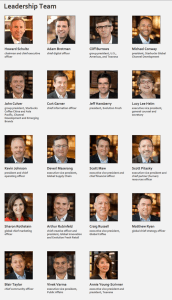Jen Kuznicki writes: If Starbucks wants us to talk about race, let’s start with why they don’t have Starbucks Coffee Houses in some of America’s cities that are mostly black, or have had a racially charged history?
My friend looked up various cities, and found that there are no Starbucks Coffee Houses in many of them.
Places like Highland Park, Michigan, which is at the center of Detroit, is inhabited by a population that is 94 percent African-American. Or in Benton Harbor, Michigan, which is almost 90 percent African-American. There is not a Starbucks in either town.
There is not a Starbucks in East St. Louis, Illinois, in which 98 percent of the population is African-American. Nor is there one in Gary, Indiana, whose population is 85 percent African-American.
The recent remembrance of the march on Selma, Alabama had the president walking down the street with many people who fought for civil rights, but once again, Selma doesn’t have a Starbucks. Neither does Ferguson, Missouri.
Here is the point, if Starbucks wants to have a conversation about race, perhaps they should explain why they are not accessible to most of those they claim to advocate for and champion. If being of a different race than white is higher on their list of desirables, why isn’t Starbucks putting their money where their mouth is?
WP: “Critics were also quick to point out that, though 40 percent of the company’s baristas are minorities, the leadership team Schultz is at the head of is overwhelmingly white.”

